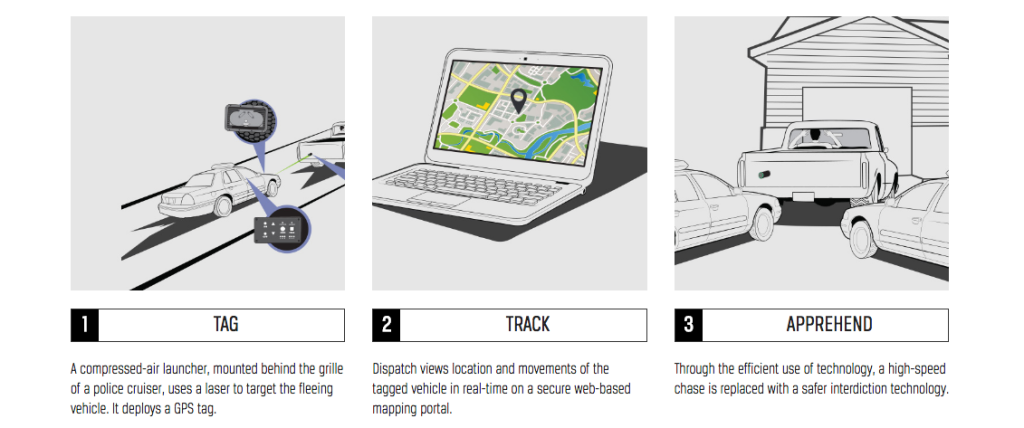Police Using GPS ‘Darts’ To Track Suspects, Prevent Dangerous High-Speed Chases Image courtesy of StarChase
It sounds like something straight out of a movie: A suspect’s vehicle blows past a police car, tires screeching as it speeds away. But instead of hitting the gas and starting a high-speed chase that could endanger everyone involved — including innocent bystanders — police in one Colorado city can now fire GPS tracking “darts” at fleeing vehicles.
The Arvada Police Department is using darts deployed from squad cars as an alternative to high-speed pursuits, reports KDVR.com.
A company called StarChase developed the darts, which use real time GPS imaging that allows officers track suspect vehicles. The darts are deployed from the front of squad cars and stick to vehicles using a proprietary adhesive that keeps car owners from removing them.
The idea here is, of course, that if police officers know exactly where a car is located, they won’t have to disrupt traffic — and potentially put others at risk — to find it. At the same time, if drivers become used to the idea that they may be tracked with a GPS dart, they could be less likely to speed off when they see lights flashing in their rearview mirror.
“The main objective of having something like this is to keep our officers safe and to keep our community safe,” an Arvada police spokeswoman told the station.
Do these darts pass the constitutional test? One lawyer says she thinks they won’t run afoul of the Fourth Amendment, so long as police use them properly.
“That would seem to be permissible if, of course, [police officers] had probable cause to believe there’s been a crime committed,” a Denver criminal defense attorney told KDVR.com.
Agencies in more than 30 states are now using the darts, StarChase says. Arvada police have had an 85% success rate using the darts over the last nine months, a number the department expects to improve as officers get the hang of deploying the darts.
Want more consumer news? Visit our parent organization, Consumer Reports, for the latest on scams, recalls, and other consumer issues.


